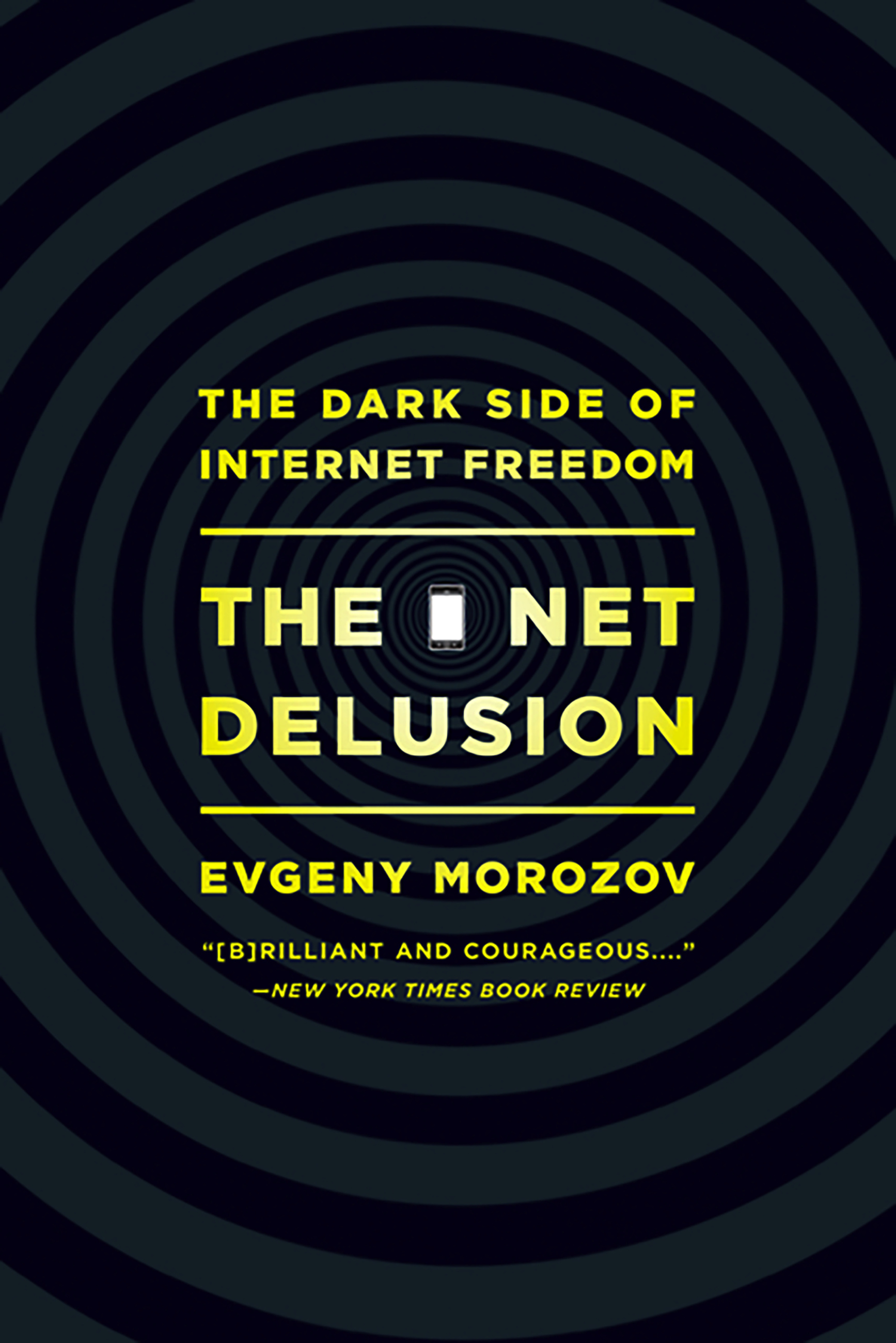00:00:01,830LILInternet: Hello and welcome to the New Models podcast[1]. On this episode we speak with00:00:05,880 00:00:05,880information security specialist Cade Diehm on digital infrastructure resilience in a time of00:00:11,580 00:00:11,580network upheaval due to Russia's escalation of the war in Ukraine and related sanctions. A00:00:18,000 00:00:18,000quick note before we start, this special report is the third in a series that considers the00:00:22,950 00:00:22,950conditions of this conflict from various angles. Last week[2] we spoke with PD Thorne about the00:00:28,980 00:00:28,980practice of open source intelligence. And in early February prior to the escalation, we were00:00:34,860 00:00:34,860joined by Anastasia Osipova,[3] on the ground in Kiev, who gave us a framework for understanding00:00:41,130 00:00:41,130the muddy, symbolic space that emerges when a country withstands the persistent threat of war00:00:47,430 00:00:47,460for many years. I'm LilInternet, joined by my co-host Carly Busta. Our guest today is Cade00:00:53,550 00:00:53,550Diehm, let's get into it.00:00:55,620 00:00:59,580Unknown: New model special report00:01:01,320
00:01:01,980Carly Busta: Continuing our special coverage on the circumstances around Russia's war in00:01:06,180 00:01:06,180Ukraine. We are joined today by Cade Diehm, an information security specialist and the founder00:01:11,940 00:01:11,940of the international digital infrastructure research group, New Design Congress. Cade is a00:01:17,280 00:01:17,280repeat guest on the New Models podcast, and one that we are lucky to also count as a member of00:01:22,710 00:01:22,710our community. We invited Cade on the show to help us think through the informational layer of00:01:28,320 00:01:28,320war today. I'm hoping that in this discussion, we can trace some of the new alignments that00:01:33,600 00:01:33,600this war is laying bere. I mean, this in the sense that if we go back to the 1990's and00:01:38,670 00:01:38,670Russia's noninclusion in the European Union, we see a Vladimir Putin that is dis-identifying00:01:44,820 00:01:44,850with the Silicon Valley enabled neoliberal order, or rather, a Putin that is willing to00:01:50,250 00:01:50,250participate in this new world order as a trade partner, while strategically preparing to one00:01:55,320 00:01:55,320day dramatically break from the quote, quote, "Think different" "Power to the people" West and00:02:00,060 00:02:00,060prove Russia's dominance overall. Likely this conversation will settle more around a00:02:05,820 00:02:05,820discussion of infrastructural resilience in a time of digital uncertainty, but it's may be00:02:10,710 00:02:10,710interesting to keep that general narrative in mind. One other framework I'd like to offer from00:02:15,930 00:02:15,930the start is that we think of this war being fought across three different fronts, physically00:02:21,720 00:02:21,750on the ground in Ukraine, financially in the markets and the material impact on the00:02:26,610 00:02:26,610populations various sanctions ultimately impact, and of course informationally across digital00:02:32,550 00:02:32,550networks. Alright, so with that as some kind of base, let's just get into it. Cade, we've been00:02:37,950 00:02:37,950sharing links back and forth all day today. And we've had some discussion in the New Models00:02:42,120 00:02:42,120discord. What is on the top of your mind?00:02:44,850
00:02:45,210Cade Diehm: Gosh, where do you want to start? The other night, we spoke about Apple and Google00:02:50,190 00:02:50,190Pay being disabled in Russia,[4] and people being locked out of not just being able to pay for00:02:56,100 00:02:56,100things, but also using your metro ticket, which might be on your phone to enter the metro00:03:01,380 00:03:01,380system. That's like a really interesting, I guess, starting point because its idea of00:03:05,490 00:03:05,490digital identity, being married to the financial structures that accommodate things like virtual00:03:11,160 00:03:11,160credit cards. One interesting starting point is, well, what would have happened, for example, if00:03:15,390 00:03:15,420Russia had digitized its COVID-19 response in the same way that say a country like Australia00:03:20,400 00:03:20,400had? How would sew chaos if the entirety of your digital identity... what kind of weaponization00:03:26,940 00:03:26,940could you do from outside of that country? It's really important just to know that, like AWS, I00:03:31,680 00:03:31,680think is still working? iCloud and Google services themselves are still working, so it's00:03:36,480 00:03:36,480not all of iCloud that's gone, it's Apple Pay, which is a part of iCloud, that's gone.00:03:41,940
00:03:41,970Carly Busta: We've seen in the past week, Europe and the UK, Switzerland, the US, Australia,00:03:47,760 00:03:47,970Taiwan, Japan, and you know, pretty much everybody who's within the Apple sphere of00:03:52,230 00:03:52,230influence, place major sanctions financially on Russia. Ihat's happening at the level of states,00:03:59,010 00:03:59,040state leaders coordinating with other state leaders. To what degree are the big tech00:04:03,300 00:04:03,300companies also coordinating and in touch with the different state leaders? Or, are they acting00:04:09,780 00:04:09,810autonomously? I mean, stopping transactions of Russia's central bank is like very major, but00:04:16,980 00:04:17,010shutting down certain Google services is also very major, completely debilitating to the00:04:23,190 00:04:23,190average Russian.00:04:24,120
00:04:24,180Cade Diehm: it's important, I think, to remember that these systems have been sold to us,00:04:27,120 00:04:27,120services, infrastructure, all this kind of stuff has been sold to us as a post state system. Up00:04:31,050 00:04:31,050until this point, we've really grappled with this idea of well, what does it mean for Apple00:04:34,920 00:04:34,920and big tech itself? What does it mean for them to be like, no longer beholden to their nations00:04:40,200 00:04:40,200of birth? And what we're kind of finding here is like, some of those assumptions around the00:04:44,430 00:04:44,460loyalties of technology companies is actually like a little bit untrue. And so the question00:04:49,500 00:04:49,500really now becomes like, are we truly living in a 21st century, post-state environment? And the00:04:55,500 00:04:55,500digital technologies that we have just happening to align are the people who run these companies00:05:00,030 00:05:00,030both from the absolute top, the CEOs, Chair people, board members, etc., all the way down to00:05:04,860 00:05:04,860the engineering teams, they're able to make decisions autonomously, all of these groups of00:05:08,880 00:05:08,880people, are they making these decisions independently based on their own ideologies? Or,00:05:13,380 00:05:13,440are they still beholden to the different states in which they operate in? And the answer is00:05:17,610 00:05:17,610probably a mixture. These are huge systems that have inserted themselves into everybody's lives.00:05:22,320 00:05:22,320There's plenty of examples where it is obvious that there are these post-20th century kind of00:05:26,850 00:05:27,030structures that exist beyond the nation state by itself, a simple example is just the amount of00:05:31,830 00:05:31,830independent money that's flowing from individuals, citizens from different countries00:05:35,520 00:05:35,520into Ukrainian relief support, or into weapons support, or, or the idea that people can come00:05:41,190 00:05:41,190and fight no questions asked is something I never thought I'd actually see. Sort of like a00:05:45,570 00:05:45,570post, almost like a post conscript kind of idea. Like joining Uber to drive a car, anyone can do00:05:50,940 00:05:50,940it, this space is here, it's your choice to go and do this as the individual. It's certainly00:05:55,080 00:05:55,080true that I think different companies have very ideologically diverse people. I mean, Peter00:05:59,490 00:05:59,490Thiel obviously doesn't perceive the world in the same way as Tim Cook. They probably see the00:06:03,780 00:06:03,780world very differently. But I think like, in a lot of the discourse that we have, especially00:06:07,560 00:06:07,590outside of policy directly, I think we make the mistake of lumping people together as like a00:06:12,450 00:06:12,450conglomerate...00:06:13,140
00:06:13,380Carly Busta: Good point.00:06:13,590
00:06:13,590Cade Diehm: ...rather than understanding that like, there is a lot of nuance here. And I think00:06:16,050 00:06:16,050that what the Ukraine situation is doing is solidifying that opaqueness and presenting a00:06:20,850 00:06:20,850package of like, actually, everybody's thinking the same way. Whereas it is not really the case,00:06:26,040 00:06:26,040I think.00:06:26,370
00:06:26,490Carly Busta: That's a great point, Cade, and I just want to hold for a second on this idea of00:06:32,040 00:06:32,070an expanded statehood, or some kind of digital statehood that exceeds the regular state00:06:39,540 00:06:39,540borders. I mean, being only an hour and a half by plane from Ukraine, I mean, maybe the00:06:46,320 00:06:46,320conflict there hits close to home for geographical reasons. But another reason might00:06:51,060 00:06:51,060be is because there's already a kind of shared statehood in the sense that we share an00:06:56,310 00:06:56,310interoperable stack of digital infrastructure. It may be we speak different languages, but we00:07:00,690 00:07:00,690use the same systems. We can view the war through what people on the ground in Ukraine are00:07:06,510 00:07:06,510uploading to these systems. And this content is not being filtered in any significant way by00:07:11,370 00:07:11,370state authorities of our respective nations. And what you were saying about people going across00:07:16,140 00:07:16,140state borders, on their own free will to fight with Ukraine, this is like a really clear00:07:21,570 00:07:21,570articulation of this post-state condition that I think we all feel. Is this an instance of where00:07:27,030 00:07:27,030you have a decoupling of media from the state, and then the state being subservient to it?00:07:32,700
00:07:32,960Cade Diehm: I mean, the concern that I have is like, from the firehose of information that's00:07:36,410 00:07:36,470arriving through these accelerated channels of communication is part of that paralysis, I feel,00:07:42,500 00:07:42,590in terms of understanding whether or not it's related to state consolidation of power in the00:07:47,360 00:07:47,360West, amongst these digital infrastructures, or whether it's post-state, is it that the world00:07:52,670 00:07:52,670leaders are irrelevant in this context? And that the information layer is acting because they00:07:57,500 00:07:57,500represent the same interest independently? Or, is it that these leaders who are using the00:08:02,810 00:08:02,810information layer as a weapon against Russia, are they doing that because they hold the00:08:06,710 00:08:06,710trigger, in a sense?00:08:07,940
00:08:08,700Carly Busta: On a slightly different note, there are a lot of technologies that have become much00:08:12,240 00:08:12,240easier to access or have even been emergent in, say, the past 10 years, different kinds of00:08:17,340 00:08:17,340surveillance or different kinds of monitoring, whether that's just flight tracking, or whether00:08:22,140 00:08:22,140that's like, the ability to track the uptick in iodine pill sales[5], or these other kinds of ways00:08:29,100 00:08:29,100of gathering information, and I'm curious what is showing up on your radar?00:08:33,960
00:08:34,080Cade Diehm: Okay, so this is like, the first time I'll talk about this publicly. And it's00:08:37,200 00:08:37,200like, really not well formed yet. But one of the ideas they've been thinking a lot about is like00:08:41,130 00:08:41,130this, you're familiar with the idea of Uncanny Valley?00:08:43,470
00:08:43,500Carly Busta: Yep.00:08:43,770
00:08:43,980Cade Diehm: I have this idea of like the uncanny valley, but for like information sensing. Where00:08:48,630 00:08:48,630like, you start with zero education, if you have like an XY graph on the X axis, its fidelity of00:08:54,270 00:08:54,270information. And on the Y axis, it's like how much you actually know about a situation. And00:08:59,130 00:08:59,130then you start at zero, there's no education, and no understanding the more that you collect00:09:04,080 00:09:04,080information on something, the more you understand it. And then you reach this point,00:09:07,830 00:09:08,070where you have algorithms and all this sort of tool to help us make sense of a world around you00:09:12,540 00:09:12,540in an abstract way, and it reaches a point where your understanding of something totally00:09:16,290 00:09:16,290craters...00:09:16,920
00:09:17,010Carly Busta: That's interesting.00:09:17,460
00:09:17,460Cade Diehm: ...and then and then it comes back the other side with like, on the ground actual00:09:20,910 00:09:21,180lived experience. What I'm sort of trying to get at here is like whether digitization of00:09:25,620 00:09:25,620societies makes them brittle. I think the answer to this is yes, as well. I think that there's a00:09:30,390 00:09:30,870an issue where the more that we factor in things like the replacement of bureaucracy, with00:09:38,370 00:09:38,370digital services, such as apps and things like that. Of course, this has tremendous benefits in00:09:42,840 00:09:42,840lots of circumstances. But there's also significant examples where there has been a huge00:09:48,990 00:09:48,990destabilizing effect on societies. And this also leads to like some other general thinking like,00:09:54,450 00:09:54,510is there a relationship between the cost of 4g or 5g connectivity and the amount of00:10:01,140 00:10:01,140disinformation consumed by people in our society. These sorts of things. There are00:10:05,400 00:10:05,400interesting ways in which these manifests anecdotally. So for example, Pravda leaking like00:10:09,750 00:10:09,750the full personal details of 120,000 Russian soldiers.[6] Like the idea of digitizing the00:10:15,060 00:10:15,060identity information of your army is like a mind boggling concept to me that immediately00:10:19,680 00:10:20,010destabilizes your ability to respond militarily. The idea of there being a large scale cyber war00:10:26,370 00:10:26,400happening at the same time as the on the ground battles is a prime example of this. I think00:10:30,900 00:10:31,260we're rapidly reaching this point where we see all forms of connectivity as a form of technical00:10:36,510 00:10:36,510debt.00:10:36,810
00:10:37,380Carly Busta: Interesting. So, I just want to hold on that for a minute. A Ukrainian newspaper00:10:42,300 00:10:42,330released all of the personal details, the addresses and the names, of the Russian00:10:48,090 00:10:48,090military, meaning that they could be targets far after this war ends, of harassment or abuse or00:10:56,070 00:10:56,100assassination. If I understand the implication.00:10:58,620
00:10:58,620LILInternet: Or prank calls, or ordered pizzas.00:11:00,480
00:11:00,990Carly Busta: Or ordered pizza. If I understand the, yeah, the implications of this correctly,00:11:04,920 00:11:05,040that's essentially what's being said is, you may think the war is happening in real time in Kyiv,00:11:10,410 00:11:10,410or Kharkiv or whatnot, but this was going to last you until you die, because we know how to00:11:15,420 00:11:15,420find you. Is that, or do you see another implication?00:11:18,210
00:11:18,510Cade Diehm: It's... well, it's all of that. The ways in which I think digitization affects00:11:22,920 00:11:22,950societies is extremely poorly understood from that context. And, and the problem is, is that00:11:28,530 00:11:28,530like, it's hard to tell in real time, things that we should be concerned about, that we're00:11:32,730 00:11:32,760only learning about through the context of the Ukrainian war.00:11:35,820
00:11:35,970Carly Busta: What are some of the other things that have come up for you?00:11:38,580
00:11:38,610Cade Diehm: So, talking about like, for example, ICANN- the Internet Corporation for Assigned00:11:43,260 00:11:43,260Names and Numbers, and they've been asked by the Government of Ukraine[7] to suspend Russian00:11:49,500 00:11:49,500domains, disabling DNS services, and also stopping the transaction or the assignment of00:11:54,630 00:11:54,630domain names to Russian entities. This is actually a core concern that was raised when00:11:58,860 00:11:58,890ICANN was established as an organization,[8] that it was a private entity that was not really00:12:04,740 00:12:04,740beholden to any kind of public office or public image. And that's the, that's the concern that I00:12:09,630 00:12:09,630think is really interesting, or the idea that a nation state whether it's a belligerent force or00:12:13,650 00:12:13,650not in a conflict, the idea that it has lesser control over its own sovereignty in that moment,00:12:18,480 00:12:18,660is a more brittle society and a more brittle state, regardless of whether you think that that00:12:23,250 00:12:23,280is justified or not.00:12:24,540
00:12:24,600Carly Busta: I was thinking about how Turkey- there's something called the Montreux Convention[9]00:12:29,250 00:12:29,250and international agreement that was established in 1936, that gives Turkey the right during00:12:35,220 00:12:35,220wartime to restrict military use of the Bosphorus and the Dardanelles straits, thereby00:12:40,560 00:12:40,560limiting naval transit between the Mediterranean and the Black Sea, and last week, Turkey00:12:45,780 00:12:45,780exercised this right.[10] And how okay, well, that would be this like physical precedent, and maybe00:12:51,540 00:12:51,540we can map it on to information pathways. Like if you allow a bad actor, like, you know, Putin00:12:59,190 00:12:59,190objectively is, in this case, you are enabling an act of war, but it just unfortunately,00:13:04,470 00:13:04,470doesn't work the same way. Like we use these analogies to help us understand these00:13:09,330 00:13:09,330information structures. But there's a certain point where you can't take this body of water00:13:14,610 00:13:14,790and a ship passing through it and say that's the same thing as like allowing a name server to be00:13:21,240 00:13:21,240listed. It doesn't link up the same way.00:13:23,010
00:13:23,190Cade Diehm: That's right, all ICANN does is deal with a completely ephemeral network layer that00:13:28,320 00:13:28,320exists on top of physical internet infrastructure. Essentially, these decisions can00:13:33,270 00:13:33,270be made in the ether, where you can be disconnected without any spatial representation00:13:39,120 00:13:39,120of that.00:13:39,600
00:13:39,840Carly Busta: Yeah, I mean, to call up one of our favorite terms, at the moment, the new00:13:44,580 00:13:44,580confusion, the idea that one could have a kind of military engagement, and there not be a00:13:51,240 00:13:51,240spatial referent for what that engagement is, I mean, I don't know if it's unprecedented, but it00:13:56,520 00:13:56,520certainly feels like a new kind of condition of war. But, to speak for a moment about another00:14:02,460 00:14:02,460arena of warfare that is often seen as contemporary though, as historians will note00:14:07,320 00:14:07,320goes back, you know, to time in memoriam: disinformation. You sent me a tweet thread[11] by a00:14:13,440 00:14:13,440researcher named Laura Edelson, who had a relatively positive view of our ability to00:14:19,020 00:14:19,050digest and differentiate disinformation. Do you want to say a word about that?00:14:23,100
00:14:23,190Cade Diehm: So, it's a particularly optimistic thread that she's put together which is00:14:26,850 00:14:26,850basically documenting the ways in which the Russian disinformation campaign has been00:14:31,200 00:14:31,470dismantled through what she calls positive actors. "So as someone who studies00:14:35,130 00:14:35,130misinformation, the past week has been a masterclass in how positive actors with a strong00:14:39,000 00:14:39,000information operation and tech platforms being somewhat sensible can create an environment in00:14:43,050 00:14:43,050which misinformation struggles to take hold." And so it's basically a list of these sorts of00:14:47,310 00:14:47,310things. What she's glossing over in this, of course, is that like the disinformation00:14:51,420 00:14:51,420campaigns on the other side of justice, strong, the underdog and the ghost of Kiev,[12] and the00:14:55,380 00:14:55,380sunflower grandmother,[13] and all these things that have emerged really rapidly over the last week.00:14:59,550 00:14:59,730They're all very, very strong propaganda messages. That's the same thing right?00:15:03,180
00:15:03,180LILInternet: Today it was reported that a Chechnyan special forces unit or something like00:15:08,190 00:15:08,190that was sent to assassinate Zelenskyy,[14] and the Ukrainians were able to take out the unit00:15:13,890 00:15:13,890because according to official Ukrainian statement, the FSB leaked information to the00:15:21,450 00:15:21,450Ukrainians to let them know where this unit was, and allowed them to strike before the unit was00:15:28,110 00:15:28,110able to successfully reach them, and they put out a statement saying that FSB didn't want to00:15:33,870 00:15:33,870fight this senseless war. And that's why they leaked the info to Ukraine. I doubt this is00:15:39,780 00:15:39,780true. Maybe it's true. But seeding in Putin's mind this paranoia that the agency he sort of00:15:46,590 00:15:46,710came up from now...00:15:48,660
00:15:48,660Carly Busta: Right, right.00:15:48,840
00:15:48,840LILInternet: ... is, might be against him as well.00:15:50,790
00:15:50,790Carly Busta: Yeah, I mean, it's interesting, just like the limits of propaganda. So you have00:15:54,270 00:15:54,300like that possi disinformation, like when you say the sunflower seed Grandma, you mean the00:15:59,550 00:15:59,550woman who like ,what is it, she gave..00:16:01,650
00:16:01,650Cade Diehm: There's a clip of a Ukrainian grandmother abusing Russian dressed soldiers[13:1] and00:16:06,360 00:16:06,360saying, take these put these in your pocket so that you grow something useful when you die on00:16:10,440 00:16:10,440our soil. Like,00:16:11,160
00:16:11,160Carly Busta: Yeah.00:16:11,460
00:16:11,460Cade Diehm: and you know, the badass grandmother like,00:16:12,960
00:16:12,960Carly Busta: Exactly.00:16:13,200
00:16:13,200Cade Diehm: This kind of thing. Like, is disinformation bad? Well, before last week, we00:16:18,120 00:16:18,120would have said yes, and now that's the opposite of that is happening. And so the whiplash is00:16:23,130 00:16:23,130really strong. Essentially, the psyops that are happening from the Western and Ukrainian fronts00:16:28,500 00:16:28,590are using very similar playbooks to what the Russians have been using historically, in the00:16:33,180 00:16:33,180last 10, 15 years, in terms of trying to destabilize Western countries such as the United00:16:38,820 00:16:38,820Kingdom and the United States and Australia also, and other enemies.00:16:42,960
00:16:43,080LILInternet: One really practical example I keep thinking of with relation to this is the fact00:16:47,730 00:16:47,730that police officers in the United States lie[15] all the time.00:16:53,190
00:16:53,220Carly Busta: Good analogy.00:16:53,520
00:16:53,520LILInternet: Like if they're searching for a murderer say, they're going to tell the press00:16:58,320 00:16:58,320"well, we found DNA of the murderer at the crime scene, so we believe we'll have an ID and we'll00:17:05,760 00:17:05,760be getting close soon," when they didn't find the DNA, right? They purposefully lie and seed00:17:12,420 00:17:12,420things in order to...00:17:14,130
00:17:14,160Carly Busta: put pressure pressure on the suspects or witnesses or... Right.00:17:17,970
00:17:17,970LILInternet: ...Encorage the to turn themselves in things like this. Right? Police are allowed00:17:21,570 00:17:21,570to lie as much as they want except when they're under oath.00:17:23,970
00:17:23,970Carly Busta: Right.00:17:24,270
00:17:24,300LILInternet: That's general practice. I mean, if the police were on the trail of a serial killer00:17:29,400 00:17:29,400and said they had DNA evidence, but they don't, would you label that as disinformation on00:17:36,270 00:17:36,270Facebook? I mean, there's state disinformation, I guess, that always gets a pass, and then it's00:17:42,450 00:17:42,450the grassroots disinfo...00:17:44,100
00:17:44,100Carly Busta: Right.00:17:44,190
00:17:44,190LILInternet: ...that is considered problematic.00:17:46,110
00:17:46,140Carly Busta: But then there's also like fact based disinformation. I mean, one important00:17:49,980 00:17:49,980point that PD Thorn made on our last podcast on open source information was a difference between00:17:55,800 00:17:55,830mis- and disinformation.[16] Misinformation is a mistake in the information that you're00:18:02,280 00:18:02,280circulating, or is...00:18:03,900
00:18:04,620Cade Diehm: Or incomplete.00:18:05,670
00:18:05,670Carly Busta: ...incomplete or lacking context, or being unaware of circulating some piece of00:18:09,990 00:18:09,990disinformation. Disinformation is a circulation of falsified facts or falsified narratives with00:18:17,250 00:18:17,250the intention of seeding a different idea. Like you're trying not to propagate truth, you're00:18:22,260 00:18:22,260using information in some way that departs from truth. But I think there's also mis- and00:18:27,810 00:18:27,810disinformation on the narrative and context level and in the fog of war, you forgive00:18:34,380 00:18:34,380narrative misinformation, right? You're like, "well, what else is Ukraine supposed to do other00:18:39,630 00:18:39,630than build this story to their benefit as much as they can?" Because they're fighting a nuclear00:18:46,020 00:18:46,020superpower, and they're going to use every single form of defense that they have available00:18:51,420 00:18:51,420to them. So what we allow and what we can tolerate, our thresholds are dependent on the00:18:57,930 00:18:57,930context of the quote quote, "truth teller."00:19:00,390
00:19:00,420Cade Diehm: Absolutely. The subtlety that you're talking about is like, I think, part of the lost00:19:05,400 00:19:05,400nuance in, in describing these things in accelerated space that we find ourselves in00:19:09,630 00:19:09,630right now. What we're dealing with here is like the same sorts of things as we've always had to00:19:13,530 00:19:13,530deal with: misinformation, propaganda, financial weaponry, real world weaponry, all of these00:19:19,590 00:19:19,590things are evolutionary in their nature, but the speed in which they're contributing to00:19:24,420 00:19:24,420everything and the intensity of it is explosive.00:19:27,360
00:19:28,200LILInternet: I wonder practically and I don't know if you know the answer to this, but00:19:32,700 00:19:32,820Afghanistan all of the money in its central bank was, is frozen by the United States.[17]00:19:39,030
00:19:39,330Carly Busta: Same with Russia now.00:19:40,380
00:19:40,380LILInternet: Right. Now you have Russia blocked from Swift.[18] You have...00:19:45,030
00:19:45,030Carly Busta: And also with central bank's assets are completely frozen.00:19:47,670
00:19:47,670Cade Diehm: Not everything, but a lot of it's been frozen, yeah.00:19:49,740
00:19:49,860LILInternet: So a lot of central bank assets frozen the first time I even knew this was00:19:54,180 00:19:54,180possible was hearing about Afghan starving because Biden froze their money and there's a00:19:59,760 00:19:59,790long reach of a lawsuit from 9/11 families to sue the Taliban for billions of dollars for, I00:20:07,650 00:20:07,650don't, having 9/11 staged within their borders? I don't know. But Cade, I'm wondering if you00:20:13,230 00:20:13,230actually know, when things got centralized enough that these kinds of things were made00:20:18,000 00:20:18,000possible.00:20:18,630
00:20:18,720Cade Diehm: I deal in systems, I'm not a financial expert, but it is the creation of00:20:21,900 00:20:21,900things like the International Monetary Fund, and these sorts of structures that emerge in a00:20:26,820 00:20:26,820post-war era. But then along with that form of centralization comes digitization. And this00:20:31,740 00:20:31,740really does come down to the nation state becoming ever more brittle through digitization.00:20:37,110 00:20:37,380And the point, I think the we just all have to remember is that the frozen assets of a Russian00:20:41,850 00:20:41,850oligarch, today, those same techniques can be used against you tomorrow.00:20:45,900
00:20:45,960LILInternet: Well, not to mention China's centralized social media system, that's also00:20:51,180 00:20:51,180their payment system, that's also if you are a dissident or criminal or something, they can cut00:20:56,820 00:20:56,820you off from traveling or buying things digitally, which is...00:21:00,510
00:21:00,810Cade Diehm: You can do that in, you can do that in the States with a felon, though as well, to00:21:04,470 00:21:04,470catch a felony.00:21:05,190
00:21:05,190Carly Busta: That's true. Good point.00:21:05,910
00:21:05,910Cade Diehm: That's not to say that I am claiming whatsoever that these systems that are00:21:09,090 00:21:09,090comparable, but what I am saying is that they have parallels. One day, we should sit down and00:21:14,040 00:21:14,040record an episode on the history of the Great Firewall of China, and how it came about. An00:21:19,170 00:21:19,170insane amount of money went into the Chinese technology system and the building of the00:21:23,310 00:21:23,310internet in China. It was driven by the Clinton administration, and that was followed up by a00:21:29,250 00:21:29,250huge rush of Silicon Valley companies to grow in basically a completely uncaptured market at that00:21:35,610 00:21:35,610time, where they had no competition. And then essentially what happened was, the Chinese00:21:40,560 00:21:40,560government drew a giant software firewall ring around the whole thing, and then started00:21:45,690 00:21:45,690dismantling all of the Chinese mainland subsidiaries of Silicon Valley companies and00:21:50,070 00:21:50,100intellectual property rights. All these sorts of things are part of a strategy that you can kind00:21:54,810 00:21:54,810of realize as being like a way of understanding and then responding proactively to the violence00:22:01,740 00:22:01,740of economic sanctions, and basically building an infrastructure that is immune to that same kind00:22:07,110 00:22:07,110of pressure. And so the Chinese economy more or less is immune to the same kinds of asset00:22:12,300 00:22:12,300freezing, at least locally, that other countries might be.00:22:15,000
00:22:15,030LILInternet: I mean, it also seems like there's, Russia has had a strategy for the past couple of00:22:19,110 00:22:19,110decades of somewhat insulating themselves from sanctions, not running a deficit...00:22:25,110
00:22:25,410Carly Busta: That's right. I mean, since since the '90's, if I understand correctly, Russia has00:22:30,000 00:22:30,000been putting aside a good deal of the profits it's been making by selling its natural00:22:36,930 00:22:36,930resources, so that it has a massive war chest[19] that allows it to be cut off, at some point.00:22:43,080 00:22:43,200Also, Russia adopted legislation known as the sovereign internet law[20] in late 2019 that allows00:22:50,370 00:22:50,370it to shield the country from being cut off from foreign infrastructure. Russia has very00:22:54,450 00:22:54,450consciously, I mean, recently, but really, since the inception of the EU, Russia has been00:23:00,300 00:23:00,300thinking about a functional structure for itself, that is sovereign.00:23:04,470
00:23:04,680Cade Diehm: I think the real difference here is that like you use Apple Pay in the subways of00:23:07,950 00:23:07,950Moscow, and you don't use Apple Pay, you use Chinese built hardware and software..00:23:11,970
00:23:12,030Carly Busta: Right.00:23:12,510
00:23:12,990Cade Diehm: ...to operate and transact on an individual level in China. And I think that one00:23:17,070 00:23:17,070of the greatest accomplishments of the Chinese government was actually to decouple its00:23:21,960 00:23:21,960vulnerability that way from the United States. So it's not vulnerable in the same way as Russia00:23:26,880 00:23:26,880is like, these two states prioritize different things in China, they prioritize digitization,00:23:32,190 00:23:32,430and manufacturing of electronics, and their proximity to the electronics industry, and their00:23:38,280 00:23:38,280pathway between the southern hemisphere and the northern hemisphere made them extremely great00:23:42,450 00:23:42,450for that. And in Russia is like natural resources and wealth generation and capital that00:23:47,550 00:23:47,550comes out of Russia. I mean, both sides have capital, but the differences is that when you00:23:51,570 00:23:51,660pour all this money into building your own digital infrastructure, if you control that00:23:55,980 00:23:56,010entirely, then you are less brittle from the outside attacking you than you are in other00:24:00,810 00:24:00,810contexts. At it's very core, this comes back to this idea of like self-hosted infrastructure.00:24:05,130 00:24:05,400This is ridiculous. But you can almost think of China as being the biggest self-hoster of the00:24:10,590 00:24:10,590world, right?00:24:11,130
00:24:11,400Carly Busta: Totally.00:24:12,030
00:24:12,390Cade Diehm: Essentially, the country equivalent of some long bearded dude running a Raspberry Pi00:24:16,560 00:24:16,560with all of his software on it.00:24:17,850
00:24:18,150LILInternet: 1.8 billion person mesh net00:24:20,340
00:24:21,060Cade Diehm: Yeah. And it turns out that that paranoia was absolutely correct, because, I00:24:25,080 00:24:25,080mean, they'd seen historically the violence of economic sanctions. Are they still vulnerable00:24:28,980 00:24:28,980via the brittleness of digital infrastructure? I definitely think so. I think digital00:24:33,150 00:24:33,150infrastructure has a complexity to it. Everything from the fact that machines have to00:24:36,720 00:24:36,720be manufactured, wires have to be laid, everything that goes into building digital00:24:40,950 00:24:40,950infrastructure, and the amount of power that it has to generate is incompatible with the climate00:24:45,420 00:24:45,420crisis that we find ourselves in, thanks to, partially, digital infrastructure itself. All of00:24:50,340 00:24:50,340these things is beyond the nation state reasons why digital infrastructure makes societies00:24:55,350 00:24:55,350brittle. But one way in which that particular part of the world is not brittle is in the fact00:25:00,480 00:25:00,480that it's chosen very deliberately to quarantine itself from the broader, open Internet, and the00:25:06,060 00:25:06,060reason you do that, despite the fact that there are really good reasons to promote the open00:25:09,960 00:25:09,960internet, is that in doing so, what comes with are a collection of cultural and economic00:25:15,000 00:25:15,000hegemonies that can actually then infiltrate and make you even more brittle.00:25:19,020
00:25:19,140Carly Busta: Yeah, definitely. And I guess further to that, one should also think about00:25:23,370 00:25:23,370autonomy at different scales. I mean, I guess it brings up the question of ARBID and some of the00:25:27,900 00:25:28,290Thiel ideology or whatever. But does it make sense to have00:25:31,020
00:25:31,020LILInternet: And Blockchain.00:25:31,410
00:25:31,410Carly Busta: a level of, and blockchain, right, to have a kind of autonomy in certain ways, and00:25:35,880 00:25:35,880then allow interdependence in other ways, like, on what level should the community or the00:25:41,130 00:25:41,130individual be sovereign from big tech?00:25:43,380
00:25:43,440Cade Diehm: One of the ways in which we define as a New Design Congress is the idea of00:25:46,740 00:25:46,740promoting infrastructure equality, which is the saying that like, communities, regions, whether00:25:52,350 00:25:52,350that's geographic regions, whether it's ethnographic regions, whether it's subcultural,00:25:56,970 00:25:56,970whatever, can actually be on their own terms, rather than have that forced upon them. And I00:26:01,530 00:26:01,530think this is a really core difference between like the promise of like, technolibertarianism,00:26:05,760 00:26:05,820and, I think, what we're advocating for. In this case, it's not about decoupling oneself from the00:26:10,800 00:26:10,800state or from a private infrastructure, because there are many reasons why private companies00:26:15,420 00:26:15,420running infrastructure might be the best configuration for a particular example. The fact00:26:19,680 00:26:19,680that there is no negotiation between these structures, and people who are expected to live00:26:24,990 00:26:24,990inside them, that I think is part of the definitional core beliefs of what we think is00:26:29,910 00:26:29,910really important for the future. These structures should be competing in much more00:26:34,230 00:26:34,230negotiated sense. So the idea that you could create your own systems or enter into someone00:26:39,570 00:26:39,570else's system should be a negotiation.00:26:41,970
00:26:41,970Carly Busta: Totally.00:26:42,150
00:26:42,180Cade Diehm: And I think that that then helps to dismantle the forces of scale that we're all00:26:46,560 00:26:46,590unable to escape from right now.00:26:48,090
00:26:48,120LILInternet: Plus, sneakernets, and mesh networks and little private internet, it's gonna00:26:53,880 00:26:53,880have a romantic resurgence in the future, I think. Regardless, it's going to feel cool to00:26:59,160 00:26:59,160have a secret internet.00:27:00,360
00:27:00,600Cade Diehm: I mean, it has, if it does come back, it has to come back in a much more nuanced00:27:04,590 00:27:04,590way for sure. I keep coming back to the way '90's and 2000's, video games ran dedicated00:27:09,510 00:27:09,510servers, where instead you would, you would open a video game, like Quake or Doom or whatever.00:27:14,400 00:27:14,730And then you had an option to run a dedicated server and bam, it was there, and then people00:27:18,840 00:27:18,840could join it. Like these systems are like, what does Google Docs look like if you could download00:27:23,760 00:27:23,760it on Steam and then open it in your Steam library, like your gaming library, and then it00:27:27,540 00:27:27,540just worked for you? Like this is what's been lost in like the last 10 to 15 years, and it's00:27:31,410 00:27:31,410that nuance that we need to have back. I think it's very warranted to have paranoia over the00:27:36,270 00:27:36,270ways in which this is unfolded.00:27:38,430
00:27:38,460Carly Busta: By this, you mean the Russian war in Ukraine and the ensuing sanctions?00:27:43,170
00:27:43,170Cade Diehm: Yeah, because although the responses may be just, against a belligerent actor, when00:27:47,730 00:27:47,730it does still show his vulnerabilities and things that could then be used to target you.00:27:52,020
00:27:52,560LILInternet: I had one quick question, in case if you don't know the answer, just, we'll move00:27:56,250 00:27:56,250on. But, separate from any sort of heroic narrative or moral duty or sacrifice, what00:28:07,260 00:28:07,290benefit in market logic is there to gain from all of these platforms shutting off Russia, or00:28:15,480 00:28:15,630proving they can shut off Russia unless it, they really are doing it because they...00:28:19,380
00:28:19,380Carly Busta: Because they're all trying to rehabilitate their image?00:28:21,660
00:28:21,990LILInternet: I want to know what the less heartfelt, selfless motivations there are.00:28:27,240
00:28:27,270Cade Diehm: Well, I mean, it could be anything. To speculate a little bit, although I have no00:28:31,680 00:28:31,680information. And I'm not suggesting anything here could be that the people who are able to00:28:36,810 00:28:36,810make these decisions are concerned about financial destabilization of the EU. It could be00:28:41,760 00:28:41,970a shock doctrine precedent that they've set that, that shows that they are operating beyond00:28:46,530 00:28:46,530the control of a nation state where they can make decisions themselves based on their own00:28:50,250 00:28:50,550governing structures, rather than being beholden to a state. It's really funny how like,00:28:54,390 00:28:54,420ultimately, like the performative nature of what we see in the public discourse, what's presented00:28:59,790 00:28:59,790to us is so much more complex and how it actually starts. The big mistake is to buy into00:29:05,520 00:29:05,520the simplistic narratives that have been built around like, unity in this crisis. And I think00:29:10,950 00:29:10,950that when the dust settles and the chips have landed, there will be a time when we are able to00:29:15,570 00:29:15,870really assess like, where people went. I mean, this is obvious, because this is what happened00:29:20,040 00:29:20,040with the Arab Spring.[21]00:29:21,000
00:29:21,270Carly Busta: Right.00:29:21,600
00:29:21,630Cade Diehm: Where everything was seen as like an altruistic collaboration between on the ground00:29:25,710 00:29:25,710protest and the broader, multinational companies of social media in particular, which then turned00:29:32,340 00:29:32,340out to be you know, very much not the case after the fact.00:29:35,100
00:29:35,160LILInternet: With a totally connected world, totally connected social media space, meta games00:29:40,920 00:29:40,980emerge, performance emerges, morality becomes a dungeon master's guide for whatever next game is00:29:48,450 00:29:48,450being played. That gets into in like epistemological...00:29:51,570
00:29:51,600Carly Busta: Yeah, I don't know if people are even doing it like, are deploying this stuff in00:29:55,140 00:29:55,170a super conscious way. I mean, I think there's a mix of emotions, driving this decision making in00:30:01,170 00:30:01,170the fog of war and wanting to be, of course, on the right side of history, etc., and also00:30:07,260 00:30:07,290maximizing whatever your advantage might be amid that.00:30:10,860
00:30:10,890LILInternet: But I imagine in Silicon Valley, particularly with how much we've seen employees00:30:15,600 00:30:15,600get together around issues of Black Lives Matter...00:30:18,330
00:30:18,330Carly Busta: True.00:30:18,420
00:30:18,720LILInternet: ...things like this, Right?00:30:19,620
00:30:19,620Carly Busta: Yeah.00:30:19,680
00:30:19,710LILInternet: There's been so much collective activism...00:30:22,650
00:30:22,680Carly Busta: Yeah, true.00:30:23,670
00:30:23,670LILInternet: ...in the corporate spaces, perhaps we aren't at the whims of the executives and the00:30:28,710 00:30:28,710giants of these Silicon Valley corporations, maybe we're at the whims of the hive mind of00:30:33,900 00:30:33,900their employees.00:30:34,500
00:30:34,500Carly Busta: That's a good point. That's a very good point.00:30:36,960
00:30:37,230Cade Diehm: Yeah. I mean, that's how product teams work in general. So it could also be the00:30:40,950 00:30:40,950case for policy. Yeah. Especially fast moving policy. I think it's really interesting that how00:30:46,020 00:30:46,020much gaming has emerged as like a way of making sense of structures and interfaces that we have.00:30:50,940 00:30:51,030I actually find it really funny because to me, the shocking thing about it is the games and the00:30:55,740 00:30:55,740interfaces and their structures are designed for maximum clarity. In a well designed game, you00:31:01,650 00:31:01,650know everything about what's going on, and you also, if you're playing competitively, you have00:31:06,270 00:31:06,540a solid idea of the mechanics of what's moving what's going on, and where your opponents might00:31:11,940 00:31:11,940be. If you look at, for example, competitive CSGO, like top of the line eSports legendary00:31:17,370 00:31:17,370competition, there are structures in place and training programs were based upon, in real time00:31:23,220 00:31:23,250process of deduction, as two teams from opposite ends of an ever changing map, meet and compete00:31:28,800 00:31:28,800against each other, the ways in which those teams move means that the team has been trained00:31:34,140 00:31:34,170to understand exactly the chances of which... it's almost like the card counting or something00:31:38,970 00:31:38,970with poker, the more that the encounter the opponents, the more you're able to then00:31:43,830 00:31:43,830anticipate where their remaining opponents are. And so to me, actually, one thing that I would00:31:48,060 00:31:48,060challenge in this context is like, we actually don't live in a games world, we live in the00:31:52,650 00:31:52,680opposite of that, where everything is opaque and obfuscated. At the end of the day, the only00:31:57,570 00:31:57,570games that work are games that give you extreme clarity, visually and cognitively, even in cases00:32:03,480 00:32:03,480where the game graphics itself are deeply overwhelming. How do we address the kind of00:32:09,540 00:32:09,540sense of information overload and lack of comprehension as these waves of information wash00:32:15,720 00:32:15,720over us, as Julian expressed. And so I think the way in which this is presented to us is exactly00:32:20,190 00:32:20,190that. It's like gamified, and these sorts of things. But in reality, video games, the ones00:32:24,420 00:32:24,420that have lasted like Counter Strike, and World of Warcraft, all of these games that have lasted00:32:27,930 00:32:28,65010, 15 years, they've lasted because of their cognitive tightness, because of the ability to00:32:33,840 00:32:33,900anticipate, read and fully understand the world that they exist within, even if they're then,00:32:38,820 00:32:38,850like, so fast paced that only 20 year old or 18 year olds can play them competitively.00:32:43,500
00:32:43,800Carly Busta: I guess the one thing that we are learning by following this war on digital00:32:47,520 00:32:47,520channels is that even though it's also screen space, even though the objects and the language00:32:54,450 00:32:54,450and the intensity are similar to a gaming space, the reality of it exceeds any kind of00:33:00,570 00:33:00,570predictable gaming logic. And that's without even mentioning, of course, the humanitarian00:33:06,330 00:33:06,330component of this. Even applying gaming logic to something like war, I think it comes from a00:33:11,520 00:33:11,520place of wanting to have some kind of agency over something that is totally uncontrollable00:33:17,430 00:33:17,460and that is so horrific. I feel like that's where this comes from in the first place.00:33:21,930
00:33:21,960Cade Diehm: That crossover is like the way in which those gamified like mechanics have been00:33:26,250 00:33:26,460brought into like real world material conflict is like, really disturbing to me. It's, I think00:33:31,080 00:33:31,140it makes me like sick in the same way as like, early COVID...00:33:34,800
00:33:34,980Carly Busta: Yeah.00:33:35,310
00:33:35,430Cade Diehm: ....news made me really sick. But yeah, no, I totally I get it. Absolutely.00:33:39,090
00:33:39,240Carly Busta: Well, I think that this conversation gave us some really good tools to00:33:42,840 00:33:42,840think about the broader information network systems and how they interface and I'm grateful00:33:48,870 00:33:48,870for that. So Cade, thank you for making the time to join us today.00:33:53,520
00:33:53,820Cade Diehm: Thank you so much.00:33:54,510
00:33:54,510LILInternet: Thank you, Cade, for joining us. Do you want to share where people can find New00:33:57,810 00:33:57,810Design Congress?00:33:58,740
00:33:58,860Cade Diehm: Newdesigncongress.org and @helvedicade on Twitter. Yeah, like the font but00:34:03,360 00:34:03,360then my name- Cade (Dee Eee), helvedicade.00:34:05,220
00:34:05,250Carly Busta: Definitely check out New Design Congress. They work with corporations and00:34:09,630 00:34:09,630organizations, but they often publish the work or report on the work they do to their website.00:34:14,790 00:34:14,910Cade is also a member of our Discord. So we'll include that information in the Discord post.00:34:21,870 00:34:22,050For everyone else, thank you for tuning in. And thank you again, Cade, for making the time to00:34:26,250 00:34:26,250join us today.00:34:26,970 00:34:27,030Thanks so much.00:34:27,840
00:34:27,929LILInternet: You can also search New Design Congress on Yandex and follow their VK page.00:34:32,579
00:34:32,580Cade Diehm: Are you accusing me being a Russian operative? I can't beleive you.00:34:35,940
00:34:35,940Carly Busta: Ciao.00:34:36,450
00:34:36,600Cade Diehm: Ciao.00:34:36,900
00:34:39,600LILInternet: Thank you for listening to this New Model special report on digital infrastructure00:34:43,560 00:34:43,560resilience and thank you, Cade Diehm, for joining us. For related discussion you can visit00:34:48,780 00:34:48,810newdesigncongress.org. That's all for now. See you next episode.00:34:54,510
00:34:56,880This has been a New Models[22] production. Music and mixing by LilInternet. For more, visit00:35:04,410 00:35:04,410patreon.com/newmodels. Be sure to sign up for the channel mailing list at Channel.xyz and stay00:35:12,900 00:35:12,900updated on our upcoming season one public launch.00:35:16,050
NM Special Report: Open Source Intelligence (OSINT) & Ukraine w/ @pdthorn
28 February 2022 ↩︎NM Special Report: Kyiv Update (Feb 8) w/ Anastasiya Osipova
11 February 2022 ↩︎Some Russian bank customers have been cut off from Apple Pay and Google Pay/ Financial sanctions are preventing some Russians from using either service
Emma Roth, The Verge
26 February 2022 ↩︎Increased Demand for Pharmaceutical Drugs Containing Potassium Iodide In Connection with the Russia-Ukraine Conflict.
Enners S, Gradl G, Kieble M, Iliescu O, Freudewald L, Said A, Schulz M. Pharmazie, 78(1):17-19.
15 April 2023
doi: 10.1691/ph.2023.2541. PMID: 37138408. ↩︎Особисті дані 120 тисяч військових РФ, що воюють в Україні – ЦОС or Personal data of 120,000 Russian servicemen fighting in Ukraine
Staff writers, Ukrayinska Pravda
1 March 2022 ↩︎Ukraine asks ICANN to delete all Russian domains
Thomas Claburn, The Register
1 March 2022 ↩︎ICANN and the Problem of Legitimacy
Jonathan Weinberg, Duke Law Journal 50, no. 1 (2000): 187–260.
doi: 10.2307/1373114 ↩︎UN Treaty Collection's page on the Convention regarding the Régime of Straits, concluded in Montreux in 1936 ↩︎
Turkey Closes The Dardanelles And Bosphorus To Warships
Tayfun Ozberk, Naval News
28 February 2022 ↩︎As someone who studies misinformation, the past week has been a masterclass in how positive actors with a strong information operation and tech platforms being (somewhat) sensible can create an environment in which misinformation struggles to take hold. A ?.; (Wayback Machine archived version)
Laura Edelson
1 March 2022 ↩︎Fact check: The 'Ghost of Kyiv' fighter pilot
Ines Eisele, Deutsche Welle
5 March 2022 ↩︎Ukrainian woman offers seeds to Russian soldiers so 'sunflowers grow when they die'
Guardian News, via YouTube
25 February 2022 ↩︎ ↩︎Assassination plot against Zelensky foiled and unit sent to kill him ‘destroyed,’ Ukraine says
Timothy Bella, Washington Post
2 March 2022 ↩︎Five Facts About Police Deception and Youth You Should Know
Nigel Quiroz, Innocence Project
13 May 2022 ↩︎Factsheet 4: Types of Misinformation and Disinformation
UNHCR
February 2022 ↩︎US freezes Afghan central bank’s assets of $9.5bn
Saleha Mohsin for Bloomberg, Al Jeazeera
18 August 2021 ↩︎U.S. Treasury Announces Unprecedented & Expansive Sanctions Against Russia, Imposing Swift and Severe Economic Costs
Press Release, U.S. Department of the Treasury
24 February 2022 ↩︎How long can Russia keep fighting the war in Ukraine?
Max Seddon, Anastasia Stognei, Polina Ivanova, Chris Campbell, Dan Clark, Sam Joiner and Caroline Nevitt, Financial Times
21 February 2023 ↩︎Russia: Growing Internet Isolation, Control, Censorship
Human Rights Watch
18 June 2020 ↩︎
↩︎ The Net Delusion by Evgeny Morozov
The Net Delusion by Evgeny Morozov
28 February 2012






